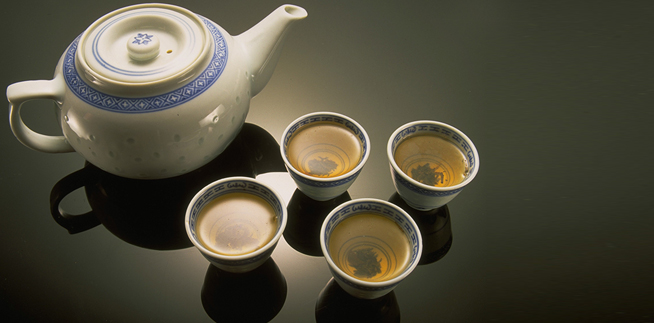The Fountain
 A human is a being who turns the most trivial things into a festival of comprehension and understanding. Yet, tea has never been casual for some – especially when it is presented in a prayer hall. Such a gesture reminds us how sharing makes human souls shine and grow.
A human is a being who turns the most trivial things into a festival of comprehension and understanding. Yet, tea has never been casual for some – especially when it is presented in a prayer hall. Such a gesture reminds us how sharing makes human souls shine and grow.
"Four Cups of Tea" illuminates four examples of collaboration and coexistence between Muslims and non-Muslims. The first example, or the first cup of tea, makes the readers feel warm and cozy. It is about a monastery tablet. The Prophet Muhammad, peace be upon him, issued a decree of protection to the Christian monks at the Monastery of St. Catherine, which is located at the top of Mt. Sinai. Today, this tablet is at the entrance of the monastery. The master of St. Catherine’s college at the University of Oxford is also one of the directors of the Centre for Islamic Studies at Oxford University. Now, the academic monastery that is named St. Catherine offers tea to Islamic Studies.
As the first example of the four glasses of tea, the spiritual legacy of the Prophet and Jesus, peace be upon them, at St. Catherine’s College at Oxford can teach us many courses: to share tea between faiths; to emphasize the education of women, as St. Catherine’s College hosted female students since 1850s. Just as tea makes one feel cozy, as if they’re at home, knowledge and the privilege of having access to knowledge can make humans feel more humane. This is a different kind of home: humanity’s pure body. As Rumi said, ‘I saw dresses without people in them, and I saw people with no garments to hide their humanity.’ Keeping the religious freedom of another fulfills the promise of the body that is created in the shape of a human. Standing for the human rights of all is what makes a human, human.
The second cup of tea for Professor Petriano was the names of the 70 Muslims who helped Jews to escape Nazi Germany. Their names were kept at The Avenue of the Righteous at Yad Vashem, Israel. Both the Qur’an and Torah testify that to save one human is equal with saving all humanity. We shall take this second cup more seriously when sharing this side of the story since interfaith initiatives in Palestine and Israel do not appeal to mass media. The third cup of tea is about understanding the trauma of the "other." Israeli-Arab lawyer Khaled Kasab Mahameed built a holocaust museum in Nazareth in 2005. He aimed to show the Israeli psyche to Arabs hoping to build bridges of understanding. This was published by the Times magazine in 2008. The last cup of tea comes from Muslim-Christian solidarity in Egypt, where Muslims formed a human-shield around a Coptic church to ensure mid-night Christmas mass was conducted safely in January 2011. The media does not often cover stories of interfaith coexistence. This can lead to many religious people – especially Muslims – facing unfair questions. These questions partially come from the ignorance of religion. Religions come to teach us how to be better human beings, as Dr. Petriano discusses; however, in the hands of some people, religion is used destructively. Therefore, to share stories of collaboration and humanity is a duty for people who believe in shared human values. One cup of tea will cultivate human values, and turn into one step towards mutual understanding – and thus, peace.








